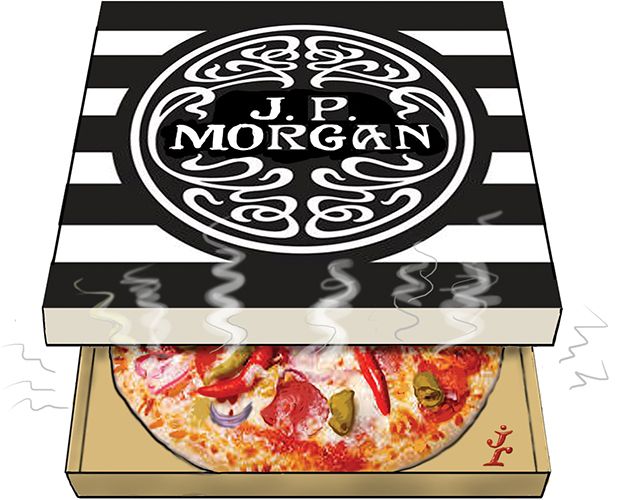To lead manage the largest high-yield bond issue in history is impressive, as is the ability to bring companies from across the globe to the European high-yield market while pushing boundaries on structure. As a result, JP Morgan is IFR’s EMEA High-Yield Bond House of the Year.
JP Morgan will go down in history for being the lead-left on the largest high-yield bond offering ever seen – the US$10.9bn-equivalent of senior secured notes issued by Numericable.
“It’s changed the market’s idea of what’s possible in the European leveraged debt markets,” said Ray Doody, head of acquisition leveraged finance for the EMEA region at JP Morgan, who believes that deals even bigger than the Numericable issue could already be possible.
“The paradigm of acquisition finance has changed,” he said. “I believe that for the right credit in the right sector with sensible leverage, it’d be possible to raise debt packages north of US$30bn – which, when aligned with sponsor equity, could make US$40bn deals feasible.”
As well as paving the way for jumbo deals in future, JP Morgan has been comfortable selling high-risk deals in niche sectors and currencies whatever the market conditions.
The £610m high-yield bond package backing Hony Capital’s acquisition of UK restaurant chain Pizza Express sold at the end of July is a prime example of JP Morgan’s nimble approach to selling high-risk deals.
The acquisition was one of the most highly leveraged LBOs of the year, at a whopping 6.5 times total net debt to Ebitda, and came at a tricky time for the European high-yield market.
The day after the deal was announced, the European market saw its first pulled deal of the year, after investors pushed back on the structure and price of a planned bond from Winoa Group.
The sterling market was particularly under pressure. June and July saw an unprecedented wave of sterling deals, with £3.4bn of new issues across 15 tranches, with the glut causing prices to tank in the secondary market.
On the day the Pizza Express deal was priced, Boparan – another issuer in the food sector – saw a sterling bond offering issued less than a month before collapse to a bid of just 90.5 on the back of a newspaper expose into its hygiene standards.
Yet JP Morgan was able to accelerate the Pizza Express deal’s timing, while pricing it at tight 6.625% and 8.625% yields on the secured and unsecured tranches respectively. The bonds were still well bid in early December, despite further market ruptures.
The bank has also been there for some of the smallest issuers in the market – often the toughest deals to sell due to investors with heightened nerves around the liquidity of small deals. IMO Car Wash, for example, had Ebitda of just €35m when it sold €240m of bonds, while hair product company, ghd, priced a tiny £165m bond issue while having just £32m of Ebitda.
JP Morgan did not shy away from the raciest structures, either.
PIK bonds were thin on the ground in 2014, but the bank led some of the key deals. A €200m issue for Findus was priced just a day before the Pizza Express deal, and was one of the few that employed the more aggressive “pay if you want” structure.
Days later, the bank led a €415m PIK deal for Polish mobile firm Play, the largest euro PIK to purely fund a dividend this year. This came just six months after JP Morgan led the company’s €900m-equivalent bond market debut.
The deals for the Polish mobile firm are just part of the geographic spread JP Morgan has brought to the market this year. Other deals came from companies from the Czech Republic to Italy and from Spain to Finland.
This is not to say it was all smooth sailing for the bank. A planned deal for Polish retailer EM&F was pulled in early August, while a sterling senior secured bond issue for KeepMoat was priced at a whopping 9.75% yield in September, well wide of its price whispers.
But many in the market thought the latter would end up at double-digit yields, and the deal was sold within the underwriter’s cap rates, according to sources close to the deal.
No debut sterling issuers have braved the high-yield market since it was priced, a testament to the barriers JP Morgan had to overcome to sell the deal at all.
To see the digital version of the IFR Review of the Year, please click here.
To purchase printed copies or a PDF of this report, please email gloria.balbastro@thomsonreuters.com.




